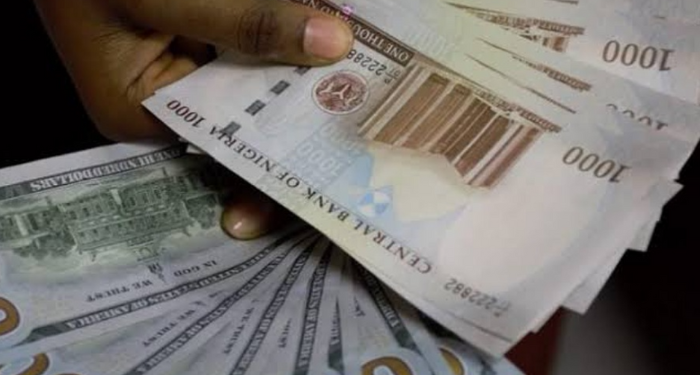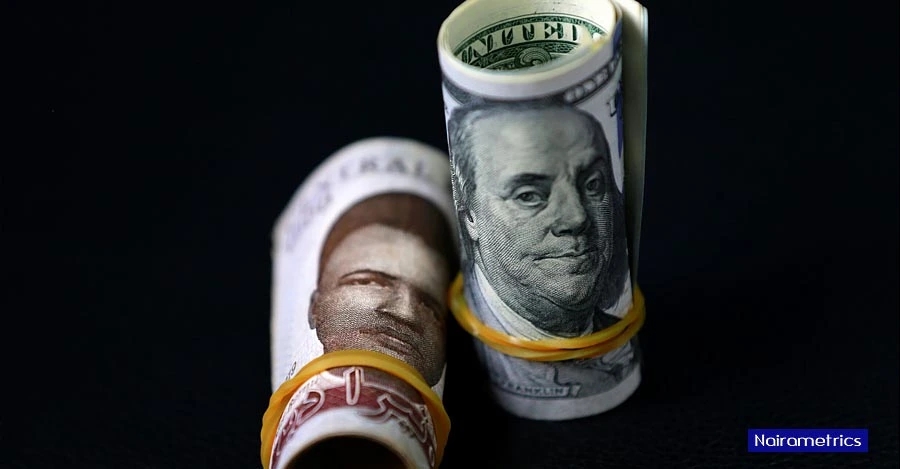The bullish dollar index and summer vacation have led to a considerable increase in demand for foreign currencies, putting significant pressure on the naira. The naira hit a four-month low on Wednesday, trading at N1,612.50/$ in the official market.
However, recent price action in the black market indicated that the naira appreciated against the U.S. dollar below the N1600 band. On the official market, it fell to N1596.92 per dollar on Friday.
The CBN increased FX sales to accredited dealers at a market discount, allowing them to sell U.S. cash to curb the increasing values in both the official and black markets. To stabilize the naira, the CBN sold $106.5 million to authorized dealers over two days on Friday.
In a statement released on Friday, the CBN disclosed that the summer seasonal rise and growing demand from corporate organizations are the main causes of the current volatility in the foreign exchange market.
In addition to ordering merchants not to sell the haven currency at a rate more than 1.5% above the purchase rate, the Nigerian central bank sold $20,000 to each bureau de change operator at a rate of N1,450/$ on Thursday.
The CBN stated that the foreign-currency sales, meant to satisfy the demand for invisible transactions, will tame high distortions. They noted, “distortions in the retail end of the market are feeding into the parallel market and further widening the exchange-rate premium.”
The Nigerian apex bank intends to keep supporting several official market segments with liquidity during the upcoming weeks. A total of $106.5 million was sold to 29 licensed dealer banks during sales on July 18 and 19, with exchange rates ranging from N1,498.00/$1 to N1,530.00/$1.
Years of severe foreign exchange shortages have caused various exchange rates and the flight of foreign investors from Nigeria. President Bola Tinubu opened currency trading when he entered office last year to close the exchange-rate differential and attract foreign investment.
The CBN’s proactive stance demonstrates its resolve to uphold foreign exchange market stability in the face of mounting demand pressure.
U.S. dollar index ended the week strong amid cyber disruption
Although currency market volatility was mostly restrained, investors were concerned by a global cyber disruption that disrupted banks, airlines, and broadcasters. As a result, the dollar index rose on Friday and appeared to end a two-week string of falls.
The perils of a global transition towards digital and networked technology were highlighted by a software update from global cybersecurity firm CrowdStrike, which crippled industries from travel to finance before services started coming back online after hours of disruption.
Concerns about the technological disruption and recent U.S. economic data caused the dollar index to increase for the second day in a row, the first in two weeks, setting the currency up for its first weekly gain in three.
The euro fell 0.16% to $1.0878, one day after the European Central Bank held interest rates unchanged as predicted and provided no clue as to its next course of action.
After statistics revealed that UK retail sales declined more than expected in June due to lower-than-expected weather, the value of sterling weakened 0.25% to $1.2909, retreating further from a one-year high reached earlier this week. The British pound is down 0.6% on the week and is about to end a three-week winning run.
The Federal Reserve is expected to meet at the end of July, and markets anticipate a low likelihood of a rate cut. However, traders have completely factored in a 25-basis point increase for the Fed meeting in September.
Before announcing a reduction in interest rates, Federal Reserve Bank of San Francisco President Mary Daly stated on Thursday that she needs further assurance that inflation is returning to the Fed’s goal level of 2%.





















